| Year-round Resident |
Northern Mockingbirds are year-round residents in the Washington metro area who are surprisingly uncommon at Monticello Park. They are common in urban and suburban neighborhoods throughout the region.
Where to See Them in the Park
At Monticello, Northern Mockingbirds are the least common of the three mimic thrushes — the other two being the Gray Catbird and Brown Thrasher. There is no good place to look for them in the park, but they are commonly seen in the neighborhood adjacent to the park.
Physical Description
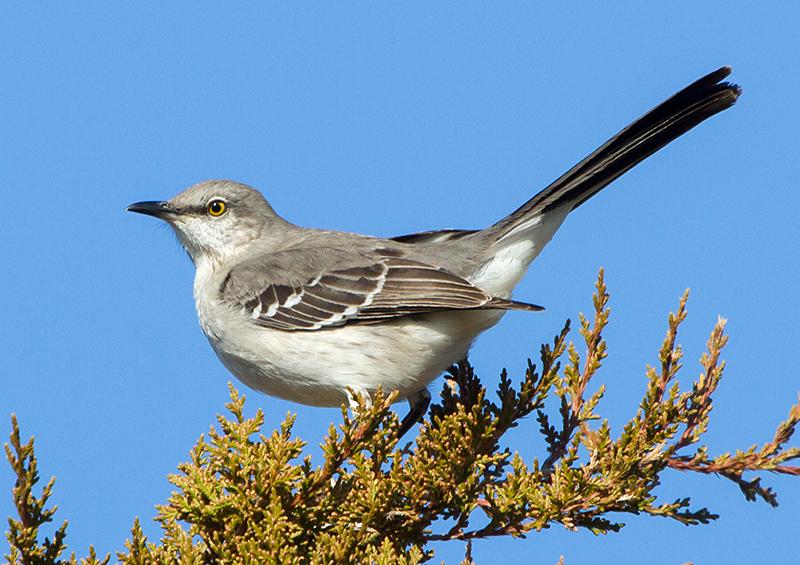
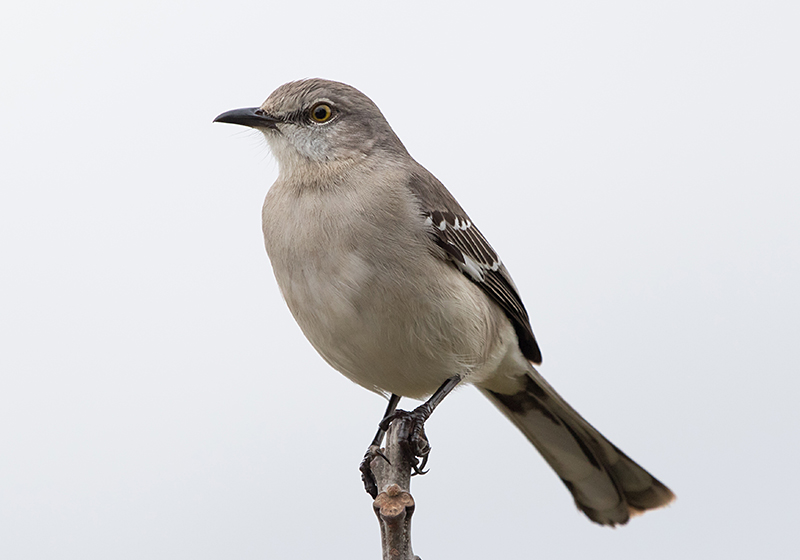
Mockingbirds are gray with dark wings which reveal white patches when open. They often sit at the top of a tree or fence or other high perch while running through their musical repertoire.
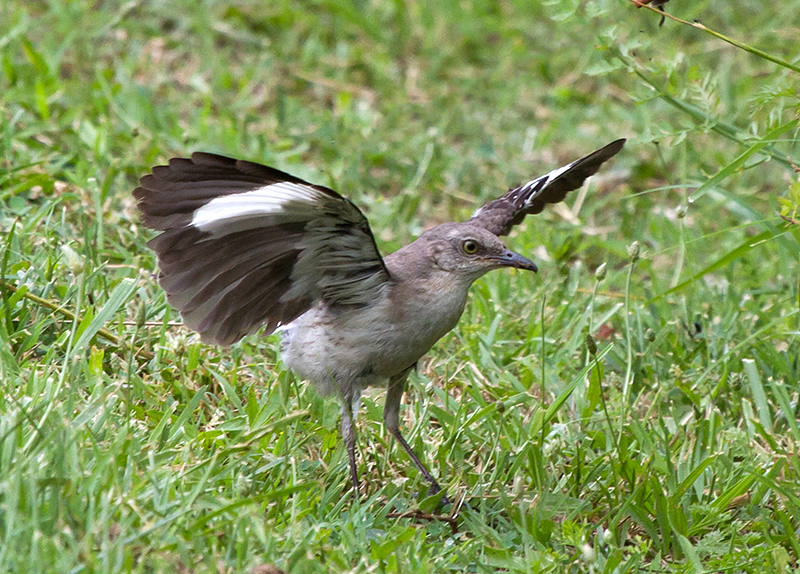
When foraging on the ground, they sometimes flash the white in their wings to startle insects, making their prey easier to catch. The sexes are similar.
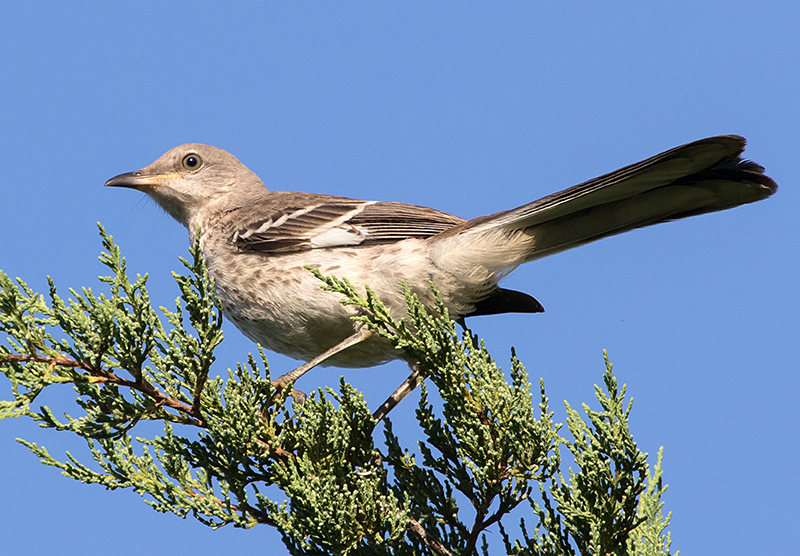
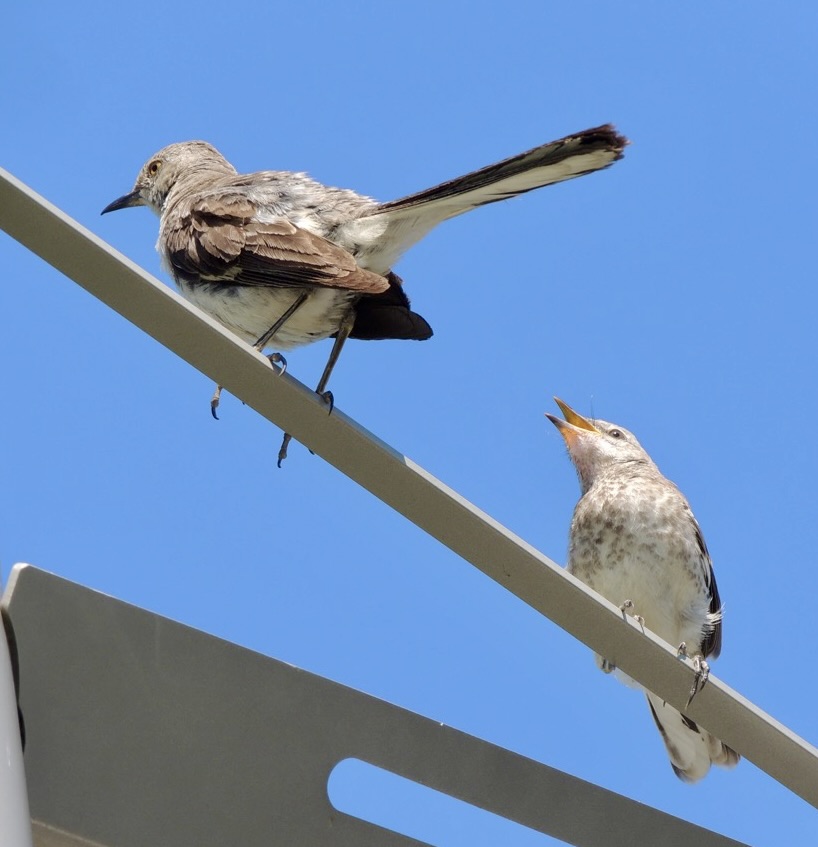
Juveniles have a speckled breast, and their eye color is duller.
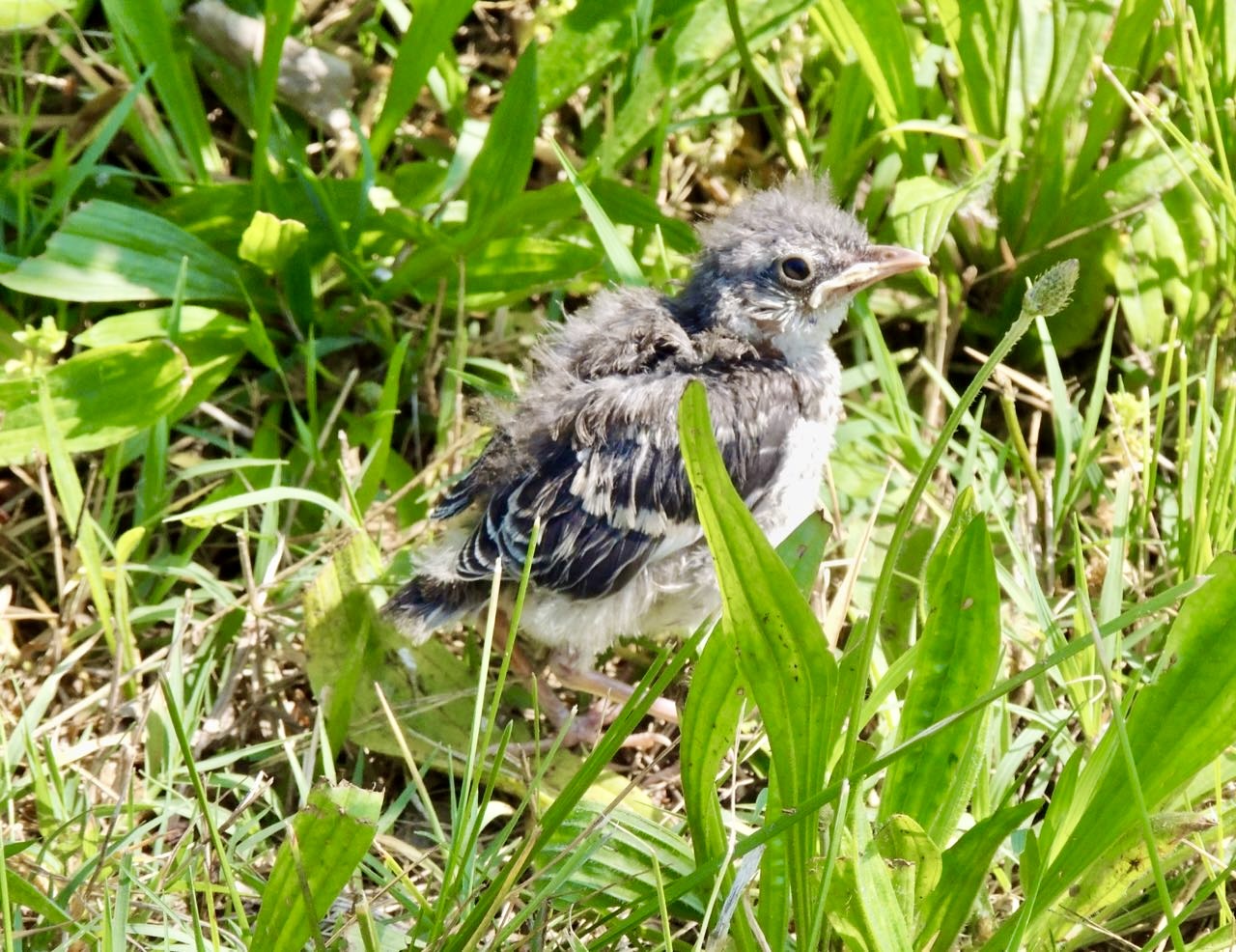
Some fledgling mockingbirds have not grown all of their feathers.
Vocalizations
Mockingbirds are best known for their ability to mimic other birds. By listening to a mockingbird, you often can pick out the songs of many of the other bird species in the area. Mockingbirds generally sing each of the songs they are imitating 4 or 5 times. They are one of the few songbird species who sings at night, sometimes to the annoyance of people trying to sleep.
Hear the vocalizations of the Northern Mockingbird.
Notes
Five states have chosen the Northern Mockingbird as their state bird: Arkansas, Florida, Mississippi, Tennessee, and Texas. It used to be the state bird of South Carolina. Mockingbirds have a reputation for being feisty, and John James Audubon's painting of them in The Birds of America shows 4 adults at a nest defending against a rattlesnake. The song "Listen to the Mockingbird" was used as the theme music for the Three Stooges. There are four species of mockingbirds on the Galapagos Islands, and they do not mimic other bird species. They live where there are few other songbirds to mimic.
Origin of Names
Common Names: Northern to distinguish it from other species of mockingbirds found farther south. Mockingbird from their ability to mimic.
Genus Name: Mimus means mimic.
Species Name: Polyglottos means many tongues, from their ability to mimic.
Northern Mockingbird video footage
Return to the Index
